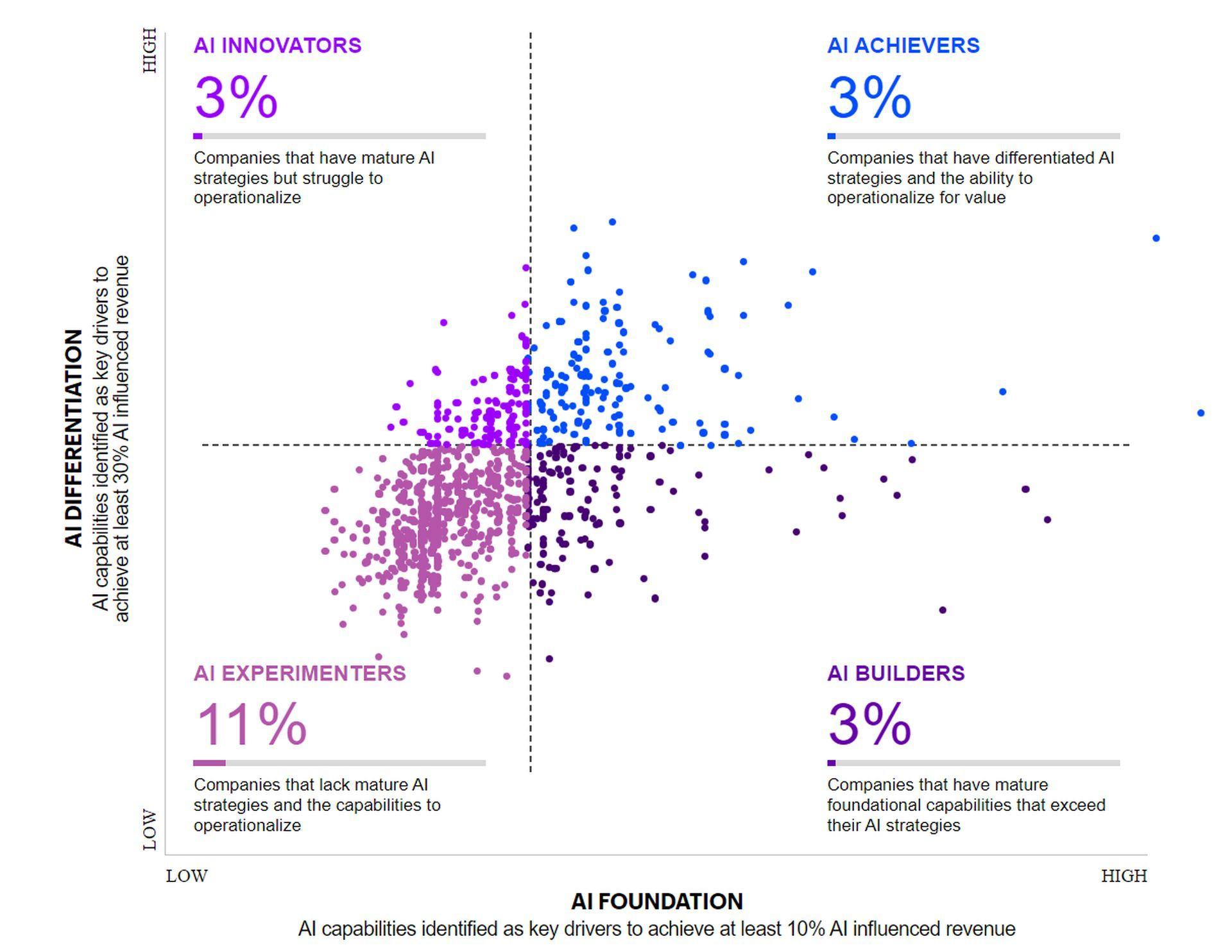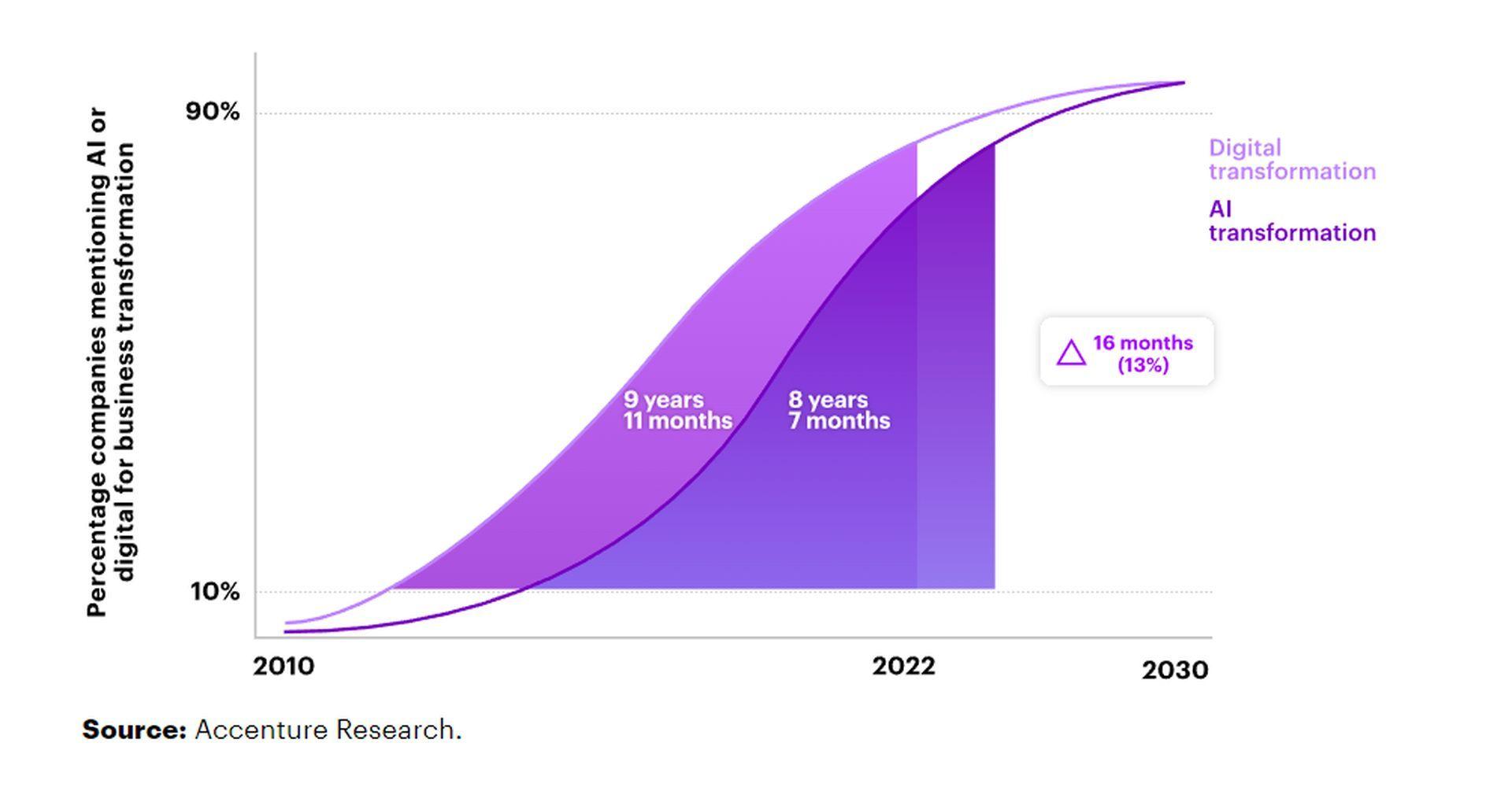According to a new Accenture report, only 12% of companies have figured out how to use AI to “achieve superior growth and business transformation.” In other words, when it comes to becoming an AI achiever, there is still much work to be done.
The relationship between AI use and corporate success remains good. Accenture reported in 2019 that top AI achievers realize 50% higher revenue growth than their counterparts who are not AI experts. No one is clamoring for an AI rethink, but progress in the real-world branch of the AI debate appears to be excruciatingly slow.
Who are AI achievers?
As previously stated, Accenture discovered in its recently released “Art of AI Maturity Report” that only 12% of firms surveyed are seeing significant success with AI, while the remaining 25% are “fairly advanced” in their AI maturity. According to the consultancy firm, the remaining 63% of the 1,200 firms surveyed are still “testing the AI waters.”
However, that low level of AI achievement will not persist for long. According to Accenture, the percentage of AI achievers will rise quickly, from 12% to 27% by 2024. This projection is based on Accenture’s machine learning models.

Accenture discovered five defining aspects of high AI achievers, including:
- Top leaders champion AI as a strategic priority for the whole organization;
- Invest heavily in talent;
- Industrialize AI tools and teams “to create a strong AI core”;
- Design AI responsibly from the start;
- Prioritize long- and short-term AI investments.
Accenture sees parallels between the AI adoption curve and what companies have experienced with digital transformation.
The environmental impact of AI makes regulations vital for a sustainable future
The good news is that Accenture expects organizations’ AI initiatives will advance more quickly than their digital transformation projects did, based on an examination of the use of terms like “AI,” “digital,” and “business transformation” in earnings calls with top executives.

“The incentive to move quickly is strong. We found, for example, that the share of companies’ revenue that is ‘AI-influenced’ more than doubled between 2018 and 2021 and is expected to roughly triple between 2018 and 2024,” Accenture wrote in its report.
Operationalizing the technology, a problem that has plagued many machine learning initiatives, is a crucial component of success with AI. The consulting firm discovered that moving from a data science initiative to full-scale production is difficult and necessitates experience in both hard skills such as data and AI and soft skills such as organizational strategy, talent, and culture.
The risks are high, but the rewards are even higher. According to Sanjeev Vohra, global head for applied intelligence at Accenture, the winner in business will be the one that succeeds in the race to become a high AI achiever.

“We believe every part of every business must be transformed by technology, data, and AI, in some cases resulting in total enterprise reinvention. AI Achievers are showing their peers what’s possible when you release the full potential of talent and technology, working in tandem, supported by a clear vision and commitment to change.
PaddlePaddle deep learning framework expands AI to industrial applications
But even this most mature group has plenty of room for growth. And while most industries have AI achievers, they vary greatly in how AI-mature they are overall and the leaps they will make,” Vohra stated in a press release.

The future of all organizations will look radically different as AI technologies proliferate; some will lead the transformation, while others will be affected by it. The teams who grasp the art of AI maturity, leveraging the cloud as the enabler, data as the driver, and AI as the differentiator, will be the ones who transform.






